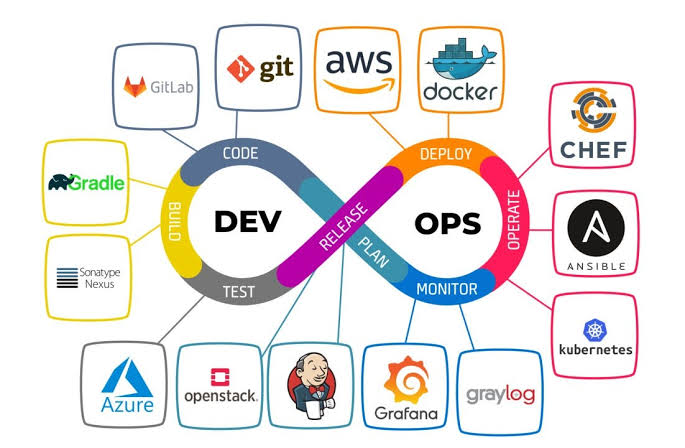The top 10 DevOps tools of 2025 demonstrate that success in deployment requires both traditional CI/CD solutions and modern container-driven platforms. Organizations that adopt these tools will not only achieve faster delivery cycles but also build resilient and scalable systems for the future.
DevOps has become a cornerstone of modern software development, bridging the gap between development and operations teams to enable faster, more reliable, and continuous delivery of applications. With growing demands for agility and automation, organizations now rely on advanced DevOps tools to streamline deployment, improve collaboration, and ensure efficiency at scale. By 2025, DevOps tools have evolved to integrate artificial intelligence, cloud-native features, and security-by-design practices. Below are the top 10 DevOps tools for efficient deployment ranked from 10 to 1.
10. TeamCity
TeamCity, developed by JetBrains, is a popular continuous integration and continuous deployment (CI/CD) tool known for its flexibility and ease of use. It supports multiple programming languages and frameworks, making it suitable for diverse development teams.
One of its strongest features is real-time build monitoring and customizable reporting. It integrates seamlessly with popular version control systems like Git and Mercurial, as well as tools such as Docker and Kubernetes. TeamCity’s scalability makes it a good choice for enterprises seeking robust deployment pipelines.
9. Bamboo
Bamboo by Atlassian is closely integrated with other Atlassian products like Jira and Bitbucket, making it a great choice for teams already using that ecosystem. It automates build, test, and deployment processes while providing strong support for continuous delivery.
Its tight integration with Jira ensures that deployment pipelines are linked to project management workflows, improving traceability. Bamboo also provides native support for Docker and cloud platforms, enabling smooth containerized deployments.
8. GitLab CI/CD
GitLab offers a complete DevOps lifecycle platform, and its built-in CI/CD pipelines make deployment highly efficient. With GitLab CI/CD, developers can create pipelines using a simple YAML configuration file, enabling automated builds, tests, and deployments.
One of its key strengths is the all-in-one nature of the platform—version control, issue tracking, security scanning, and CI/CD are all integrated into one tool. This makes GitLab particularly appealing for organizations looking to reduce complexity by consolidating their DevOps stack.
7. CircleCI
CircleCI is widely recognized for its scalability and speed in automating build and deployment pipelines. It supports cloud-based and self-hosted options, making it suitable for businesses of different sizes.
Its standout feature is parallelism, which allows multiple jobs to run simultaneously, reducing build times significantly. CircleCI also integrates with GitHub and Bitbucket, and it has strong support for Docker-based workflows. For teams that prioritize rapid deployment cycles, CircleCI is a valuable option.
6. Chef
Chef is a configuration management tool that automates the deployment and management of infrastructure. It uses code, known as “recipes,” to define system configurations, ensuring consistency across environments.
Chef’s strength lies in its infrastructure-as-code approach, which makes deployments repeatable and scalable. It integrates well with cloud providers like AWS, Azure, and Google Cloud, and it is especially valuable for enterprises with complex infrastructure requirements.
5. Puppet
Puppet is another powerful configuration management tool that enables automation of infrastructure provisioning and deployment. It uses a declarative language to define configurations, ensuring that systems remain consistent and compliant.
Puppet Enterprise adds advanced reporting, role-based access control, and orchestration features, making it suitable for large-scale deployments. Its strong focus on compliance and security has made it a preferred choice in regulated industries like finance and healthcare.
4. Ansible
Ansible, developed by Red Hat, has gained popularity for its simplicity and agentless architecture. Unlike other tools, it does not require agents to be installed on target systems, reducing complexity in deployments.
It uses YAML playbooks for configuration and automation, making it easy to learn and adopt. Ansible integrates well with cloud platforms, containers, and Kubernetes. Its straightforward design and scalability have made it a favorite for enterprises seeking efficient deployments with minimal overhead.
3. Jenkins
Jenkins remains one of the most widely used DevOps tools due to its open-source flexibility and extensive plugin ecosystem. It enables continuous integration and continuous delivery by automating builds, tests, and deployments.
The large community around Jenkins ensures constant innovation and support for almost every DevOps-related integration. While it can be complex to configure for large projects, its adaptability makes it a cornerstone of many deployment pipelines worldwide.
2. Docker
Docker has revolutionized deployment by introducing containerization, allowing developers to package applications and their dependencies into portable containers. This ensures consistent performance across development, testing, and production environments.
Its lightweight nature and scalability make it ideal for microservices architectures. Docker integrates seamlessly with Kubernetes, CI/CD tools, and cloud platforms, making it one of the most critical components in modern DevOps toolchains.
1. Kubernetes
At the top of the list is Kubernetes, the industry-standard platform for container orchestration. It automates deployment, scaling, and management of containerized applications, ensuring efficiency and reliability at scale.
Kubernetes is particularly valuable for enterprises managing microservices and large-scale cloud-native applications. Its capabilities include self-healing, load balancing, and automated rollouts and rollbacks. With strong community support and integration across all major cloud providers, Kubernetes has become the backbone of modern DevOps deployment strategies.
Conclusion
Efficient deployment in DevOps depends on choosing the right tools that balance automation, scalability, and reliability. From configuration management tools like Chef and Puppet to containerization with Docker and orchestration with Kubernetes, each plays a unique role in the ecosystem.
